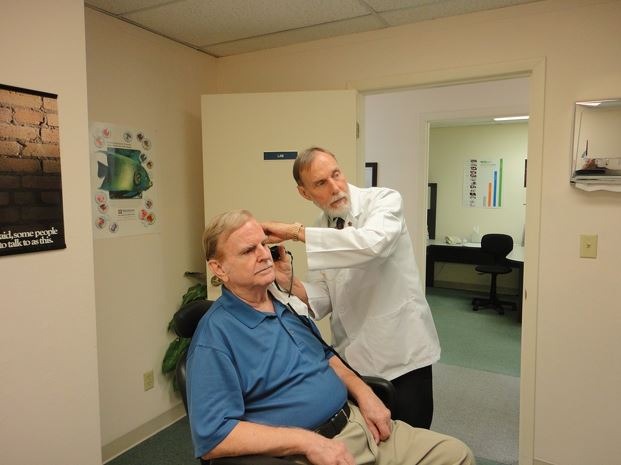Losing your hearing is among the most common disabilities, affecting around 1 in 8 Americans. That’s why having good hearing health is so important, not only does it help us stay socially connected to others, but it also helps us be safe and updated on timely information. Improving your hearing isn’t just about wearing aids, there are numerous ways to prevent loss and maintain healthy ears. This post will provide you with ways to ensure your hearing stays sharp and strong.
1. Protect Your Ears From Loud Noises
Hearing loss can be caused by exposure to very loud noises. Wear earplugs or noise-canceling headphones to protect your ears whenever you are around loud noises, such as athletic events, concerts, and construction sites. If you work in a loud environment, make sure to take breaks from the noise every couple of hours. You should also have your hearing tested annually so you can monitor any changes in your hearing. The earlier you catch any hearing loss, the better.
2. Take Care of Your Overall Health
Both physical and mental health can affect hearing. Maintaining a healthy lifestyle, including exercising regularly and eating a balanced diet, can help you protect your hearing by keeping your ears in good condition. Research has also found that stress plays a role in how well we hear. Make sure to take time for yourself each day to relax and de-stress so you can protect your hearing from the effects of stress. You should also get plenty of sleep and rest to ensure your hearing is functioning at its best.
3. Avoid Substance Abuse
Substance abuse can take a toll on your hearing. Smoking cigarettes, drinking alcohol in excess, and using drugs can all damage the delicate tissues in the ear that are necessary for hearing. If you do abuse any of these substances, try to minimize your consumption as much as possible and consider quitting altogether.
If you are taking any medications, ask your doctor or pharmacist about any potential side effects related to hearing. Some medications can affect hearing, so it’s important to know what they are and how they could affect your ears.
4. Get Regular Hearing Tests
Having your hearing tested regularly is one of the best ways to protect it. Your doctor or audiologist can help you determine if there are any changes in your hearing. If found, they will provide advice on how to address it.
Regular testing also helps you catch any issues early so they can be addressed and managed before they worsen. HearCanada, for example, has a team of audiology professionals who can provide comprehensive hearing tests and solutions. You can also find hearing clinics and audiologists in your area who can provide similar services.
5. Use Hearing Aids
If you experience hearing loss, using a hearing aid can help. Hearing aids amplify sounds so that your ears can pick them up, making conversations and other activities easier for those with hearing difficulties. Hearing aids come in many forms, from the traditional behind-the-ear models to tiny invisible models that fit inside the ear and are virtually undetectable. If you’re considering a hearing aid, speak with your doctor or audiologist about which type might be best for you.
6. Treat Ear Infections Promptly
Infections can cause temporary hearing loss, so it’s important to treat infections quickly. Bacteria and viruses can cause ear infections, but allergies or other environmental factors can also cause them. If you experience any earache, itching in the ears, or a strange discharge from your ear, visit your doctor for an evaluation. They can help diagnose the issue and recommend treatments that can help reduce symptoms and prevent hearing loss.
Hearing is complex and can be easily damaged if not taken care of properly. These tips can help protect your hearing and ensure that you can hear clearly for years to come. Protect your hearing now, and you’ll be thankful later.

